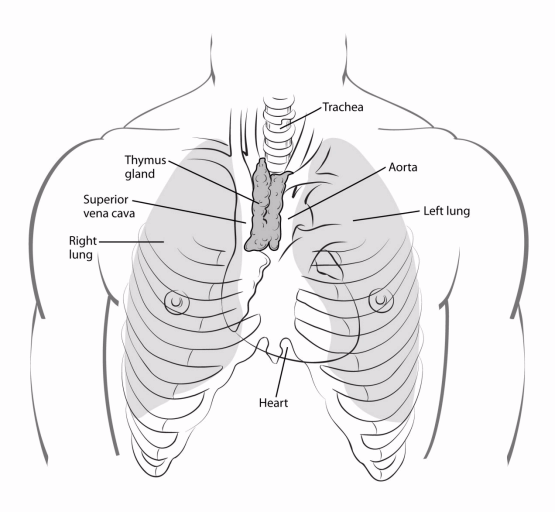Your gift is 100% tax deductible.
Signs and Symptoms of Acute Lymphocytic Leukemia (ALL)
Acute lymphocytic leukemia (ALL), also known as acute lymphoblastic leukemia, can cause many different signs and symptoms. Most of these happen in all kinds of ALL, but some are more common with certain subtypes of ALL.
ALL symptoms caused by low numbers of blood cells
Most signs and symptoms of ALL are caused by a shortage of normal blood cells. This happens when leukemia cells crowd out normal blood-making cells in the bone marrow.
These shortages show up on blood tests, but they can also cause symptoms, including:
- Feeling tired or weak
- Feeling dizzy or lightheaded
- Shortness of breath
- Pale skin (harder to see in darker skin tones)
- Infections (including fevers) that don’t go away or keep coming back
- Bruises (or small red or purple spots) on the skin
- Bleeding, such as frequent or severe nosebleeds, bleeding gums, or heavy menstrual bleeding in women
General symptoms of ALL
People with ALL might also have some other, nonspecific symptoms, including:
- Fever
- Night sweats
- Loss of appetite
- Weight loss
Symptoms of ALL in specific parts of the body
ALL sometimes affects specific parts of the body.
Swelling in the abdomen (belly)
Leukemia cells can build up in your liver or spleen, making them larger. You might notice this as:
- Fullness or swelling of your belly
- A feeling of being full after eating only a small amount
Your lower ribs usually cover these organs, but when the organs are enlarged, a doctor can feel them.
Enlarged lymph nodes
If ALL spreads to lymph nodes close to the surface of your body, you might notice lumps under your skin in areas such as your groin, the sides of your neck, or your underarms.
Lymph nodes inside your chest or abdomen may also swell, but these can only be detected by imaging tests such as CT or MRI scans.
Bone or joint pain
Sometimes leukemia cells build up near the surface of the bone or inside the joint, leading to pain in these areas.
Spread to other organs
Less often, ALL spreads to other organs:
- Brain or spinal cord: If ALL spreads to these organs, it can cause headaches, weakness, seizures, vomiting, trouble with balance, facial muscle weakness or numbness, or blurred vision.
- Inside the chest: This can cause fluid buildup and trouble breathing.
- Less common spread: Rarely, ALL may spread to the skin, eyes, testicles, ovaries, kidneys, or other organs.
Symptoms from an enlarged thymus
The T-cell subtype of ALL often affects the thymus. This is a small organ in the middle of your chest behind your sternum (breastbone) and in front of your trachea (windpipe).
- An enlarged thymus can press on your trachea, leading to coughing or trouble breathing.

SVC syndrome
The superior vena cava (SVC) is a large vein that carries blood from your head and arms back to your heart. It passes next to your thymus. If your thymus is enlarged, it may press on the SVC, causing blood to “back up” in your veins.
This is known as SVC syndrome. It can be life-threatening, and it needs to be treated right away.
SVC syndrome can cause:
- Swelling in your face, neck, arms, and upper chest (sometimes with a bluish-red color)
- Headaches
- Dizziness
- Changes in consciousness, if it affects the brain
Tell your doctor about possible ALL symptoms
Any of the symptoms and signs above may be caused by ALL, but they can also be caused by other conditions. Still, if you have any of these problems, especially if they get worse or don't go away, it’s important to see a doctor so the cause can be found and treated if needed.
- Written by
- References

Developed by the American Cancer Society medical and editorial content team with medical review and contribution by the American Society of Clinical Oncology (ASCO).
Advani AS, Aster JC. Clinical manifestations, pathologic features, and diagnosis of B cell acute lymphoblastic leukemia/lymphoma. UpToDate. 2025. Accessed at https://www.uptodate.com/contents/clinical-manifestations-pathologic-features-and-diagnosis-of-b-cell-acute-lymphoblastic-leukemia-lymphoma on May 9, 2025.
Appelbaum FR. Chapter 95: Acute Leukemias in Adults. In: Niederhuber JE, Armitage JO, Doroshow JH, Kastan MB, Tepper JE, eds. Abeloff’s Clinical Oncology. 6th ed. Philadelphia, Pa. Elsevier: 2020.
National Cancer Institute. Acute Lymphoblastic Leukemia Treatment (PDQ®)–Patient Version. 2025. Accessed at https://www.cancer.gov/types/leukemia/patient/adult-all-treatment-pdq on May 9, 2025.
Last Revised: August 13, 2025
American Cancer Society medical information is copyrighted material. For reprint requests, please see our Content Usage Policy.
American Cancer Society Emails
Sign up to stay up-to-date with news, valuable information, and ways to get involved with the American Cancer Society.



